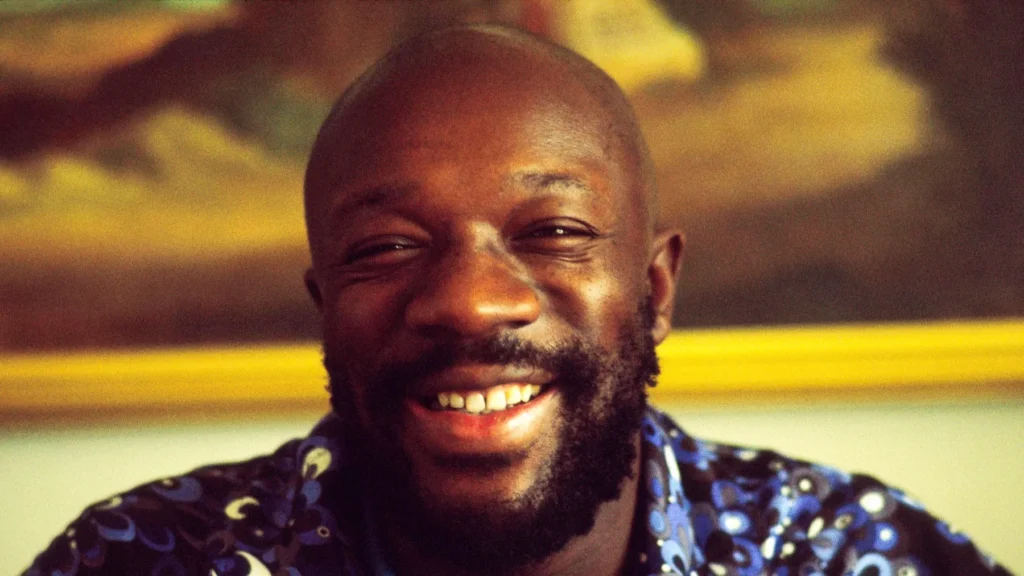
The estate of the legendary soul singer Isaac Hayes has taken decisive legal action against former U.S. President Donald Trump, filing a lawsuit for $3 million over alleged copyright infringement.
The lawsuit, brought by Hayes’ family and represented by Walker & Associates, claims that Trump and his campaign unlawfully used the iconic song “Hold On, I’m Coming” at numerous rallies without obtaining permission.
Specifically, the lawsuit identifies 134 instances of unauthorized use from 2022 to 2024, highlighting what the Hayes family views as a blatant disregard for intellectual property rights.
In the lawsuit, the Hayes estate demands several remedies. These include an immediate cessation of the song’s use at any campaign events, removing all related videos that feature the music, a public disclaimer acknowledging the unauthorized use, and the payment of $3 million in licensing fees.
The estate has set a deadline of August 16, 2024, for compliance, warning that failure to meet these demands will result in further legal action.
Isaac Hayes III, the late singer’s son, has been vocal about his disapproval of Trump’s actions, expressing his frustration and determination to protect his father’s legacy.
In a public statement, Hayes III criticized Trump for the unauthorized use of his father’s music and for what he describes as a lack of integrity and class.
“Donald Trump epitomizes a lack of integrity and class, not only through his continuous use of my father’s music without permission but also through his history of sexual abuse against women and his racist rhetoric,” Hayes III stated.
“This behaviour will no longer be tolerated, and we will take swift action to put an end to it.”
Hayes III further elaborated on the broader implications of the lawsuit, emphasizing the need for artists to stand up against the unauthorized use of their work in political campaigns, especially those that promote divisive ideologies.
“We stand in solidarity with all musicians whose work has been co-opted without consent by divisive political campaigns. A musical performer’s art is a reflection of their soul, not a tool for promoting hatred or bigotry,” Hayes III asserted.
“It’s time for all artists to unite and demand respect for their creative legacies.”
The lawsuit against Trump is part of a broader pattern of legal challenges the former president has faced regarding using music at campaign events.
Over the years, Trump has garnered a reputation for using songs from various artists who have publicly opposed his candidacy.
This has often resulted in cease-and-desist orders and legal threats from the artists or their representatives.
As per reports from Consequence, just this past weekend, renowned singer Celine Dion expressed her discontent with Trump for using her hit song “My Heart Will Go On” at a rally in Montana, further fueling the ongoing controversy surrounding his campaign’s use of music.
The tension between Trump and the music industry is not new. Throughout his political career, he has repeatedly faced criticism from artists who do not want their work associated with his brand of politics.
In many cases, these artists have taken legal action or publicly denounced Trump for what they perceive as the misuse of their creative output.
The Hayes lawsuit is the latest in a series of such disputes, stressing the ongoing struggle between artists and political figures over the control and use of artistic works.
This lawsuit raises more general questions about the ethical and legal implications of using music in political campaigns.
While it is common for campaigns to use popular songs to energize crowds and convey a particular message, the unauthorized use of such music can lead to significant legal repercussions.
According to industry experts, campaigns are typically required to obtain licenses for the music they use at events, and failing to do so can result in lawsuits, as demonstrated by the Hayes family’s legal action.
As the court case advances, the music industry will be watching closely to see how the courts handle this case.
The outcome could set a precedent for how similar cases are dealt with in the future, potentially influencing how political campaigns approach the use of music.
For now, the Hayes family remains firm in their resolve to protect the legacy of Isaac Hayes and ensure that his music is not used in ways they deem inappropriate.
The lawsuit also serves as a reminder of the power of music and its ability to influence and inspire.
Many artists’ music is deeply personal and reflects their values and beliefs.
When that music is used in ways that contradict those values, it can feel like a violation of their artistic integrity. ‘
The Hayes family’s decision to take legal action is not just about protecting their financial interests but also about defending the creative legacy of Isaac Hayes and standing up for artists’ rights everywhere.
As the August 16 deadline approaches, the pressure is on for Trump and his campaign to respond to the demands of the Hayes estate.
Whether they will comply with the terms set out in the lawsuit or choose to fight the allegations in court remains to be seen.
However, it is clear that the Hayes family is prepared to pursue this matter to its conclusion, driven by a deep sense of responsibility to protect the legacy of one of the most influential musicians of the 20th century.





